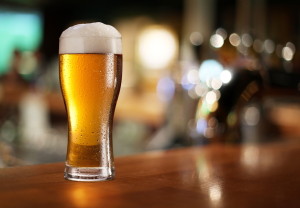- Calls to this hotline are currently being directed to Within Health or Eating Disorder Solutions
- Representatives are standing by 24/7 to help answer your questions
- All calls are confidential and HIPAA compliant
- There is no obligation or cost to call
- Eating Disorder Hope does not receive any commissions or fees dependent upon which provider you select
- Additional treatment providers are located on our directory or samhsa.gov
Dealing with Late Night Food Runs While in ED Recovery
Contributor: Leigh Bell, BA, writer for Eating Disorder Hope
An initial Google search on late-night food in college turned up these captivating tidbits:
- “Eating Late at Night at the Best Party Schools”
- “Our 13 Favorite Late-night College Eats”
- “The 17 Best Late-Night College Eateries for Food You (Maybe) Won’t Regret the Next Morning”
And this gem of a headline: “Drunk college student breaks into business, eats half a box of Hot Pockets, passes out.”
Late Night Eating
Obviously, late-night eating is a “thing” on college campuses. It’s spurred by post-midnight activities like studying, partying, and drinking – young adults simply exercising the newfound freedom of independent living. But if you have or are recovering from an eating disorder this late-night noshing can be problematic. Eating late can trigger binge-purge cycles and cause people to restrict during the day in preparation the wee-hour calories.

Overall, college students are 87 percent more likely to order late-night meals than the average diner, says information from GrubHub, a national mobile and online food ordering company that connects diners to local restaurants. [1]
Adding Alcohol to the Equation

So, if you’re dealing with an eating disorder, be mindful of your alcohol intake for this reason and many others.
But alcohol is on campus. Period. And it leads many students to late-night drive-thrus, where eating healthfully is stereotypically challenging. Where can you find vegetables and fruit at 2am?
Taco Bell gets it the college diet. The fast-food Tex-mex mecca coined the term “fourthmeal” for those late-night grazers. “You’re out. You’re hungry. You’re doing fourthmeal,” its website advertises a spread of crunchy, cheesy tacos and nachos.
Wendy’s says “Eat great real late,” to advertise its restaurants open until midnight or later. Jack in the Box encourages us to “make a late night food call” on their burgers, fries, or stuffed jalapeños. They’re not advertising well-balanced meals here.
Late Night Eating is Rarely Healthy

And this leads us to the Freshman 15. While some swear by it, most students don’t gain 15 pounds. [2] If you are in recovery from an eating disorder, a few pounds gained (although nothing to freak out about) can spark a relapse. This slight weight gain could also unearth a vulnerability to an eating disorder.
This is something to monitor as almost half of people with eating disorders report the onset age of 16-20 years old, and freshman year of college is right in the middle of this age range.

And the truth is, when you’re studying late you’ll probably get hungry. We should eat something at least every 4 hours, as a general rule. Just make healthy choices. Apple and peanut butter. Carrots and hummus.
Most importantly, listen to and respect your body. It’s your vessel to sail through this amazing college experience, get your degree, and go on to fulfill your dreams.
Community Discussion – Share your thoughts here!
What are some of your favorite healthy choice snacks? What do you recommend that works well for healthy eating of fast food? Do you have snacks already prepared for when you get the munchies so you can grab and go?
About the Author:
Leigh Bell holds a Bachelor of Arts in English with minors in Creative Writing and French from Loyola Marymount University in Los Angeles. She is a published author, journalist with 15 years of experience, and a recipient of the Rosalynn Carter Fellowship for Mental Health Journalism. Leigh is recovered from a near-fatal, decade-long battle with anorexia and the mother of three young, rambunctious children.
References:
- GrubHub and Spoon University Analysis Highlights Differences in College Eating Habits. (2014, August 19). Retrieved August 13, 2015, from http://media.grubhub.com/media/press-releases/press-release-details/2014/GrubHub-and-Spoon-University-Analysis-Highlights-Differences-in-College-Eating-Habits/default.aspx
- Zagorsky, J., Smith, P. (2011). “The freshman 15: A critical time for obesity intervention or a media myth? Social Science Quarterly, 92(5), 1389-1407.
The opinions and views of our guest contributors are shared to provide a broad perspective of eating disorders. These are not necessarily the views of Eating Disorder Hope, but an effort to offer a discussion of various issues by different concerned individuals. We at Eating Disorder Hope understand that eating disorders result from a combination of environmental and genetic factors. If you or a loved one are suffering from an eating disorder, please know that there is hope for you, and seek immediate professional help.
Last Updated & Reviewed By: Jacquelyn Ekern, MS, LPC on August 28, 2015. Published on EatingDisorderHope.com
